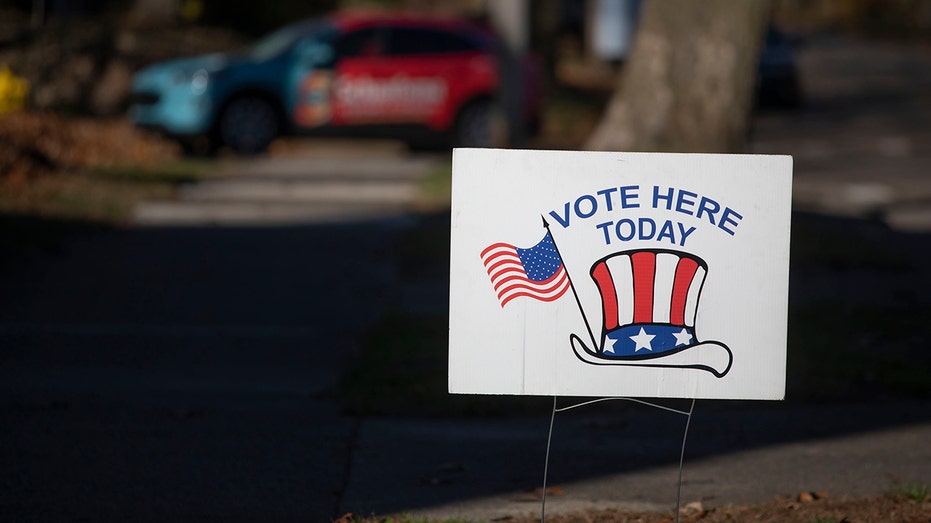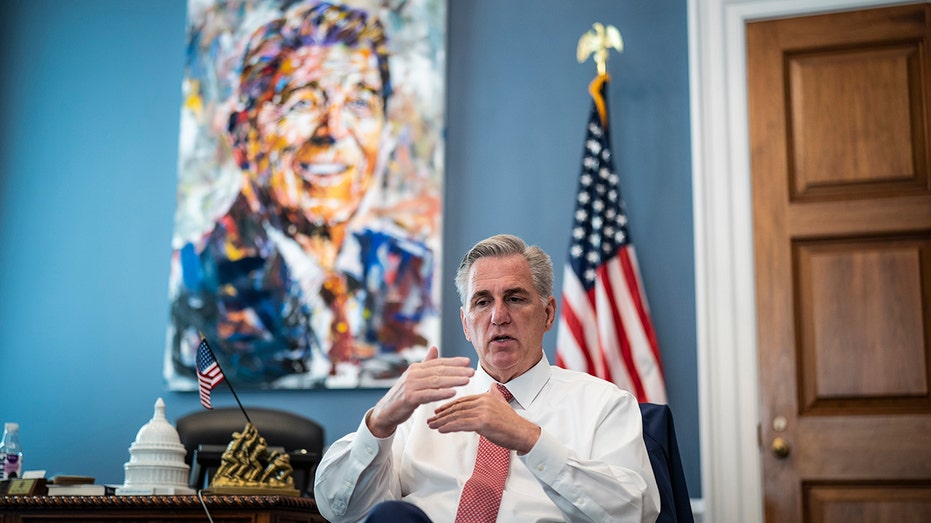Midterm elections hold big stakes for US economy as headwinds grow
The midterm elections on Tuesday come at a pivotal time for the U.S. economy as it faces an increasingly grim outlook amid stubbornly high inflation and the increased likelihood of a recession this year or next.
Voters who are feeling the string of consumer prices that are still running near a 40-year high will cast their ballots to determine which party controls the House and the Senate, and the winners will be almost immediately confronted by an ailing economy besieged by rampant inflation and rapidly rising interest rates.
But the next Congress, which will not convene until January, will also have the power to shape the economy with fiscal policy.
Here is a close look at some of the issues that experts are paying close attention to as they await the results from Tuesday’s elections.
2022 MIDTERM ELECTIONS: LIVE UPDATES

A sign denotes a polling location on election day on Nov. 8, 2022 in Grand Rapids, Michigan. (Bill Pugliano/Getty Images / Getty Images)
Tax changes
Both parties are promising to enact major tax changes if they win control of both chambers of Congress.
Republican lawmakers are gearing up to extend key parts of former President Trump’s tax overhaul, and President Biden remains intent on pushing through his tax-hike plan to raise levies on corporations and wealthy Americans and implement a global minimum tax. If the GOP seizes control of the House and Senate, Biden’s plan will be stopped in its track.
“The prospects for significant tax legislation beyond this year are almost entirely dependent on the election outcome,” said John Gimigliano, head of legislative affairs at KPMG.
Should the GOP regain control of both chambers of Congress, they have indicated that a top economic priority would be enshrining key parts of the 2017 Tax Cuts and Jobs Act into law. That $1.2 trillion tax overhaul — the largest since Ronald Reagan occupied the Oval Office — slashed the top individual tax rate to 37% until 2025 and permanently cut the corporate tax rate from 35% to 21%.
House Minority Leader Kevin McCarthy confirmed during an interview with FOX Business’ Larry Kudlow last month that Republicans want to “lock in those tax cuts that we got, that we’ve got to pass in the next couple of years to make that happen as well.”

House Minority leader Kevin McCarthy, R-Calif., meets in his office with former House Speaker Newt Gingrich, and Kellyanne Conway, former Trump White House advisor on Sept 22, 2022 in Washington, DC. (Jabin Botsford/The Washington Post via Getty Images / Getty Images)
Still, unless Republicans win a 60-plus seat majority in the Senate — an unlikely occurrence — they would need to recruit several Democrats in order to avoid a filibuster and pass the measure in order to force President Biden’s hand
Debt limit
Congress will need to raise or suspend the federal borrowing limit at some point in 2023 in order to avoid a first-ever default on the national debt.
MIDTERM ELECTIONS COULD BRING HIGHER TAXES IN SOME STATES: WHAT VOTERS NEED TO KNOW
The U.S. Treasury is expected to reach its mandated $31.4 trillion borrowing limit some time next year; should Republicans win control of either chamber of…
Read More: Midterm elections hold big stakes for US economy as headwinds grow
